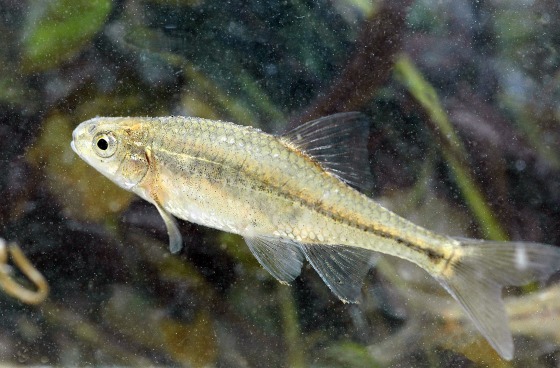GRANTS PASS, Ore. -- A tiny minnow that lives only in backwaters in Oregon's Willamette Valley is the first fish to be formally removed from Endangered Species Act protection because it is no longer in danger of extinction. The action by the U.S. Fish and Wildlife Service comes 22 years after the 3-inch-long Oregon chub was first listed as an endangered species, and five years after it was upgraded to threatened. Paul Henson, state director for Fish and Wildlife, said the Oregon chub demonstrates that a lot of species can be brought back from the brink of extinction, if key needs are met, such as a safe place to live, even in an urban landscape. "This doesn't mean that all of a sudden it's hands off, and we never need to do anything for them," Henson said. "But we can at least put them back in the group of species that need attention, but don't need to go into the emergency room of the (Endangered Species Act)."
U.S. Fish and Wildlife Service Director Dan Ashe was scheduled to formally announce the removal at an event on Tuesday, but his flight from Washington, D.C., was canceled due to snow. The Oregon chub had practically disappeared from the Willamette Valley as the swampy backwaters and beaver ponds it depends on were drained to control flooding and create farms and cities over the past century and a half. Those that survived became easy prey for non-native predators, such as bass and bullfrogs. Restoring the chub has focused on working with private, tribal and public landowners to protect and restore ponds and backwaters the fish needs to thrive, transplanting fish to expand its range and population, protecting them from predators, and altering dam releases to resemble natural river flows. A range of state and federal agencies, tribes, conservation groups and private landowners joined in the work.
IN-DEPTH
- Beyond 2015: Can World's Most Endangered Wildlife Survive?
- 'Racing Extinction' Sounds Alarm on Ocean's Endangered Creatures
- Arapaima Alert: Amazon's Biggest Fish Is Going Extinct
